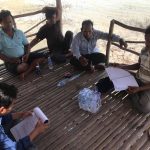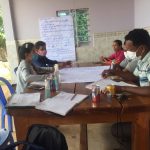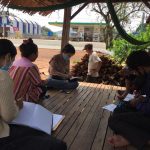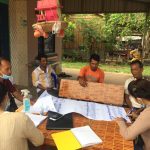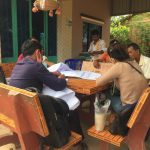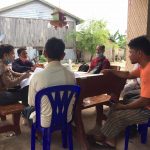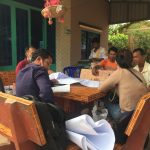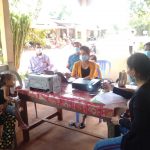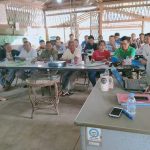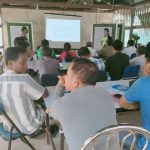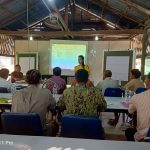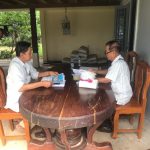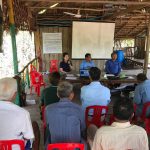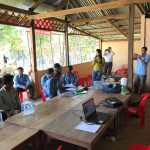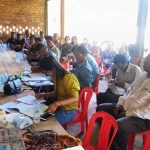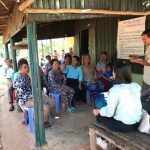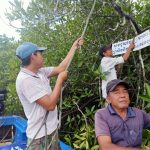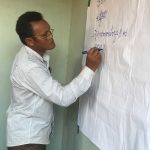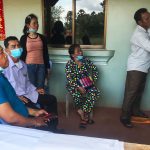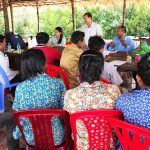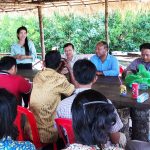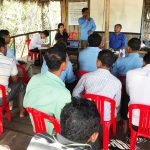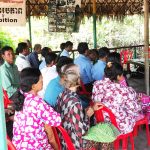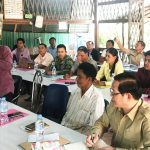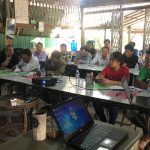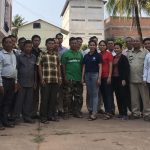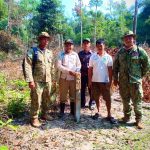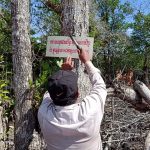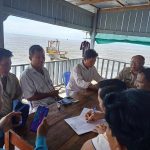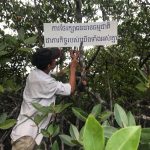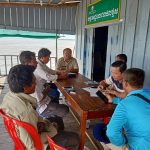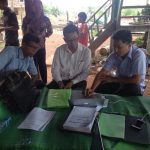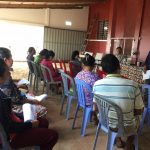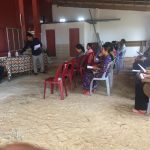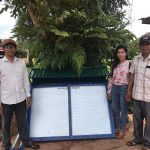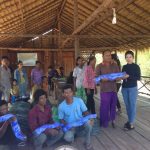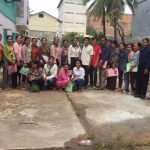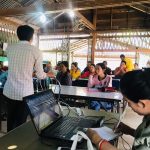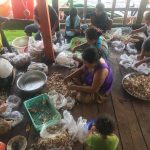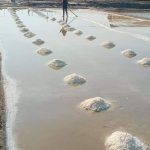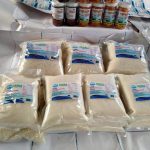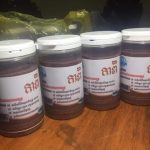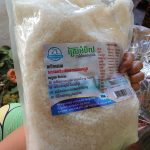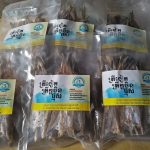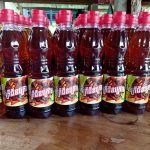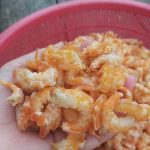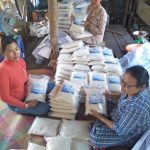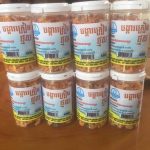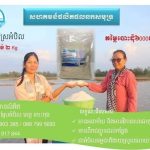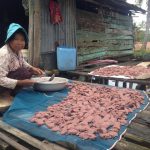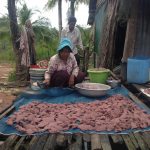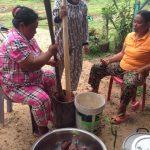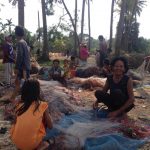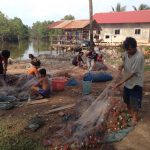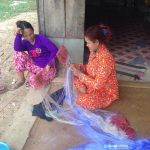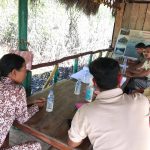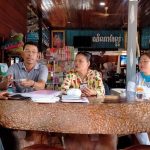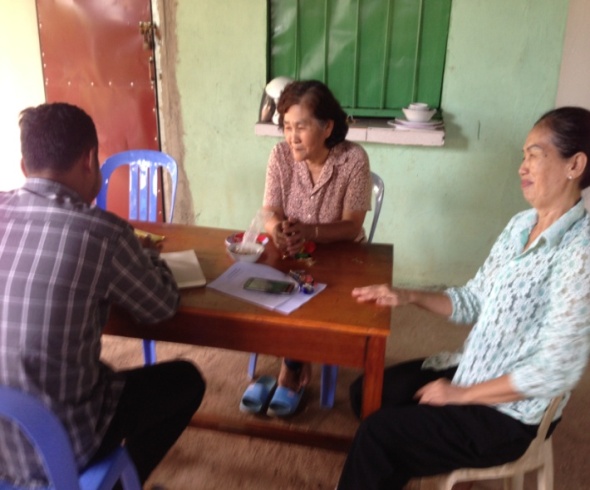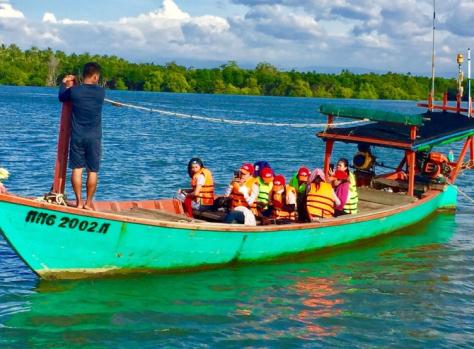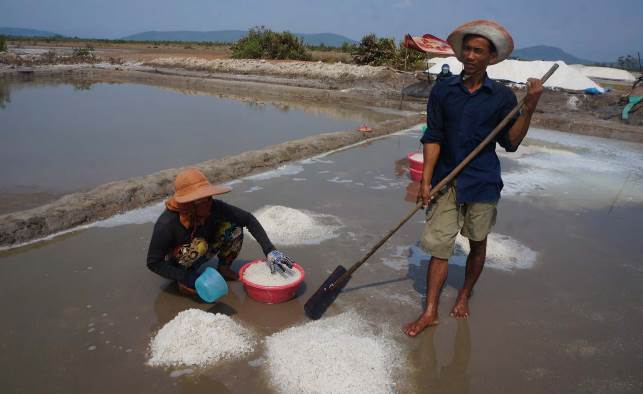Author: wpadmin
Job Announcement
Thank you to visitors.
Breaking News
The training on the Law and development of fisheries to the Fisheries Community Committee including the Fisheries Administration Officers as well at MORODOK office in the last January 2024.
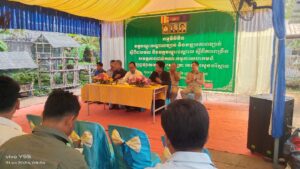
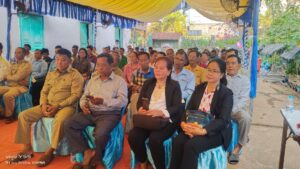
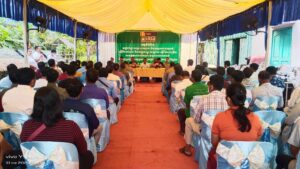
Visiting at Morodok project of Hight school students
Gallery
- ប្រជុំកែសម្រួលលក្ខន្តិកៈបទបញ្ជាផ្ទៃក្នុងរបស់សហគនទនេសាទនៅឃុំជ្រោយស្វាយ
- កិច្ចប្រជុំកែសម្រួលលក្ខន្តិកៈនិងបទបញ្ជាផ្ទៃក្នុងសហគមន៍ព្រៃឈើព្រែកជីកនៅឃុំជីខក្រោម
- កិច្ចប្រជុំស្ដីពីការធ្វើបច្ចុប្បន្នភាពក្រុមកែច្នៃផ្ដៅនៅឃុំកំពង់សីលា
- កិច្ចប្រជុំកែសម្រួលលក្ខន្តិកៈបទបញ្ជាផ្ទៃក្នុងសហគមន៍ព្រៃឈើនៅឃុំកំពង់សីលា
- កិច្ចប្រជុំកែសម្រួលលក្ខន្តិកៈបទបញ្ជាផ្ទៃក្នុងរបស់សហគមន៍ព្រៃឈើនៅកំពង់សីលា
- ប្រជុំកែសម្រួលលក្ខន្តិកៈបទបញ្ជាផ្ទៃក្នុងរបស់សហគមន៍ព្រៃឈើនៅកំពង់សីលា
- ប្រជុំកែសម្រួលលក្ខន្តិកៈបទបញ្ជាផ្ទៃក្នុងរបស់សហគមន៍ព្រៃឈើនៅកំពង់សីលា
- ប្រជុំជាមួយសហគមន៍តំបន់ការពារធម្មជាតិអណ្ដូងទឹកដើម្បីរៀបចំផែនការចុះល្បាតនៅភូមិ
- បណ្ដាញសហគមន៍នេសាទទាំង៨ចូលរួមវគ្គបណ្ដុះបណ្ដាលស្ដីពីច្បាប់សហគមន៍នៅការរិយាល័យ មរកត
- បណ្ដាញសហគមន៍នេសាទទាំង៨ចូលរួមវគ្គបណ្ដុះបណ្ដាលស្ដីពីច្បាប់សហគមន៍ នៅការរិយាល័យ មរកត
- បណ្ដាញសហគមន៍តំបន់ការពារធម្មជាតិចូលរួមវគ្គបណ្ដុះបណ្ដាលស្ដីពីច្បាប់សហគមន៍ នៅការរិយាល័យមរកត
- គណៈកម្មការសហគមន៍នេសាទប្រជុំប្រចាំខែនៅឃុំទំនប់រលក
- ប្រជុំផ្សព្វផ្សាយពីច្បាប់ជល ដល់សមាជិកសហគមន៍ នៅឃុំជ្រោយស្វាយ
- ប្រជុំផ្សព្វផ្សាយពីច្បាប់ជល ដល់សមាជិកសហគមន៍ នៅឃុំជ្រោយស្វាយ
- ប្រជុំផ្សព្វផ្សាយពីច្បាប់ជល ដល់សមាជិកសហគមន៍ នៅឃុំជ្រោយស្វាយ
- ប្រជុំផ្សព្វផ្សាយពីច្បាប់ជលដល់សមាជិកសហគមន៍នៅឃុំជីខក្រោម
- គណៈកម្មកាសហគមន៍នេសាទទំនប់រលកចុះល្បាតព្រមទាំងបានបោះផ្លាកសញ្ញា
- សម្របសម្រួលប្រជុំសហគមន៍តំបនការពារអណ្ដូងទឹកដើម្បីរៀបចំសកម្មភាពល្បាត
- សម្របសម្រួលប្រជុំសហគមន៍តំបនការពារអណ្ដូងទឹកដើម្បីរៀបចំសកម្មភាពល្បាត
- ប្រជុំផ្សព្វផ្សាយពីច្បាប់ជលដល់សមាជិកសហគមន៍នៅឃុំជីខក្រោម
- ប្រជុំផ្សព្វផ្សាយពីច្បាប់ជលដល់សមាជិកសហគមន៍នៅឃុំជីខក្រោម
- ប្រជុំផ្សព្វផ្សាយពីច្បាប់ជល ដល់សមាជិកសហគមន៍ នៅឃុំជ្រោយស្វាយ
- ប្រជុំផ្សព្វផ្សាយពីច្បាប់ជល ដល់សមាជិកសហគមន៍ នៅឃុំជ្រោយស្វាយ
- បណ្ដាញសហគមន៍តំបន់ការពារធម្មជាតិចូលរួមវគ្គបណ្ដុះបណ្ដាលស្ដីពីច្បាប់សហគមន៍នៅការរិយាល័យមរកត
- បណ្ដាញសហគមន៍នេសាទទាំង៨ចូលរួមវគ្គបណ្ដុះបណ្ដាលស្ដីពីច្បាប់សហគមន៍នៅការរិយាល័យ មរកត
- ប្រជុំផ្សព្វផ្សាយពីច្បាប់ជលដល់សមាជិកសហគមន៍នៅឃុំជីខក្រោម
- គណៈកម្មការសហកម្មតំបន់ការពារធម្មជាតិសហកាជាមួយមន្រ្តីបរិស្ថានដើម្បីចុះល្បាតក្នុងដែនសហគមន៍
- គណៈកម្មកាសហគមន៍នេសាទទំនប់រលកចុះល្បាតព្រមទាំងបានបោះផ្លាកសញ្ញា
- សហគមន៍នេសាទឃុំថ្មសបានសហការជាមួយមន្រ្តីជំនាញជលផលប្រជុំប្រចាំខែលើកឡើងពីផែនការបន្ត
- គណៈកម្មកាសហគមន៍នេសាទទំនប់រលកចុះល្បាតព្រមទាំងបានបោះផ្លាកសញ្ញា
- សហគមន៍នេសាទឃុំថ្មសបានសហការជាមួយមន្រ្តីជំនាញជលផលប្រជុំប្រចាំខែលើកឡើងពីផែនការបន្ត
- ពង្រឹសម្ថតិភាពដក់គណៈកម្មការឃុំអណ្ដូងទឹក
- ផ្សព្វផ្សាយពីលក្ខន្តិកៈនិងគោលការណ៍កម្ចីប្រាក់ដល់សមាជិកនៅឃុំកំពង់
- ផ្សព្វផ្សាយពីលក្ខន្តិកៈនិងគោលការណ៍កម្ចីប្រាក់ដល់សមាជិកនៅឃុំកំពង់សីលា
- មរតកគាំទ្រក្ដាពត៍មានដល់គណៈកម្មការសហគមន៍អណ្ដូងទឹក
- ក្រុមគ្រួសាក្រីក្រទទួលសំភារៈនេសាទនៅឃុំជីខក្រោម
- ក្រុមបណ្ដាញបានចូលរួមវគ្គបណ្ដុះបណ្ដាលស្ដីពីបច្ចេកទេសកសិកម្មថ្មីៗនៅការិយាល័យមរតក
- ក្រុមបណ្ដាញបានចូលរួមវគ្គបណ្ដុះបណ្ដាលស្ដីពីបច្ចេកទេសកសិកម្មថ្មីៗនៅការិយាល័យមរតក
- ផ្សព្វផ្សាយពីផលិតផលបណ្ដាញ
- ផ្សព្វផ្សាយពីផលិតផលបណ្ដាញ
- ផ្សព្វផ្សាយពីផលិតផលបណ្ដាញ
- ផ្សព្វផ្សាយពីផលិតផលបណ្ដាញ
- ផ្សព្វផ្សាយពីផលិតផលបណ្ដាញ
- ផ្សព្វផ្សាយពីផលិតផលបណ្ដាញ
- ផ្សព្វផ្សាយពីផលិតផលបណ្ដាញ
- ផ្សព្វផ្សាយពីផលិតផលបណ្ដាញ
- ផ្សព្វផ្សាយពីផលិតផលបណ្ដាញ
- ផ្សព្វផ្សាយពីផលិតផលបណ្ដាញ
- ផ្សព្វផ្សាយពីផលិតផលបណ្ដាញ
- ផ្សព្វផ្សាយពីផលិតផលបណ្ដាញ
- សកម្មភាពក្រុមកែច្នៃកាពិនៅឃុំជ្រោយស្វាយ
- សកម្មភាពក្រុមកែច្នៃកាពិនៅឃុំជ្រោយស្វាយ
- សកម្មភាពក្រុមកែច្នៃកាពិនៅឃុំជ្រោយស្វាយ
- ក្រុមរកផលនិងកែច្នៃផលនេសាទកំពង់ជួសជុលម៉ងនៅឃុំជ្រោយស្វាយ
- ក្រុមរកផលនិងកែច្នៃផលនេសាទកំពង់ជួសជុលម៉ងនៅឃុំជ្រោយស្វាយ
- ក្រុមរកផលនិងកែច្នៃផលនេសាទកំពង់ជួសជុលម៉ងនៅឃុំជ្រោយស្វាយ
- ក្រុមកែច្នៃអំបិលនៅស្រុកស្រែអំបិល
- គណៈកម្មការទូតទាត់ចំនូលចំណាយនិងរផបចំរបាយការណ៍នៅឃុំជ្រោយស្វាយ
- គណៈកម្មការប្រជុំគ្នាអំពីផលិតផលនិងទីផ្សានៅឃុំអណ្ដូងទឹក
Video
Case Story: Improving Community Finance
Tumnob Rolok commune is on the coast of Kampong Som Bay in Steung Hav District. The population is mostly poor, and 80% of the people depend on fishing in the sea and seafood processing. The remaining 20% work mainly in the services sector. Their living situation is not good enough for a happy life. They fish in the sea, and they process seafood in traditional ways without the skills and techniques needed for producing foods that meet modern market requirements.
To address this situation, Morodok initiated discussions among community people to consider using community revolving funds (CRF) for the community’s development. The community people strongly supported creation of a revolving fund, and 5 committee members were elected to the CRF management committee to assist community people to get loans for improving their businesses.
Morodok provided technical support to build their capacity in financial management, loan management, and development of structures, rules and regulations for the CRF to run effectively.
Members of the CRF now have the ability to process the funds well. Community members are happy to access the funds for their small businesses.
Mrs. Si Eav, leader of the CRF, said that “Before having the CRF, community people tried to access loans from microfinance institutions where they needed to provide a certificate of property ownership. It is so difficult for poor people. Since the CRF was established, poor people can get loans from the CRF without a certificate of property.”
She expressed that “I almost did not believe myself that I can lead and manage the finances of the CRF effectively with the entrepreneur groups; but I have now obtained skills and received training in leadership, management, loan management and business skills from Morodok. I think that the CRF is good for helping poor people in my community to develop and improve their social economic development, and I will try my best to continue working with the CRF more.”
Case Story: Chroy Svay Community Fisheries
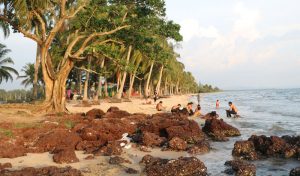 Drive about 165 km from Phnom Penh on National Road No. 4, turn right to continue for another 17 km on National Road No. 48, arrive at an intersection, and then turn left onto the red rock commune road to the Chroy Svay fishing community. The place is very attractive for local, national and international visitors because of its beautiful seaside and mangrove forest, enriched with many varieties of marine fishery resources such as shrimp, crab, snails and fish. There are around 2,000 household members in the Chroy Svay community fishery. Most of them are smallholder fishers.
Drive about 165 km from Phnom Penh on National Road No. 4, turn right to continue for another 17 km on National Road No. 48, arrive at an intersection, and then turn left onto the red rock commune road to the Chroy Svay fishing community. The place is very attractive for local, national and international visitors because of its beautiful seaside and mangrove forest, enriched with many varieties of marine fishery resources such as shrimp, crab, snails and fish. There are around 2,000 household members in the Chroy Svay community fishery. Most of them are smallholder fishers.
“Currently, the women in my community are very busy to earn extra income through seafood processing activities. I notice that there is a remarkable increase in the number of visitors coming to our community for eco-tourism, contrib-uting to increased purchase of our community products and eco-tourism services. Thanks to Morodok for facilitation and support for the strengthening of our community fishery, establishment of eco-tourism, and especially support to seafood processing and marketing. Previously only men who caught fish with their fishing nets could make income selling their fresh fish directly to wholesalers at nonnegotiable prices. Today my community could sell both fresh and processed seafood products, not only to visitors, but also to wholesalers coming to our villages and buying the products at a better price” said Mr. Kun Hok, a leader of the Chroy Svay Community Fishery.
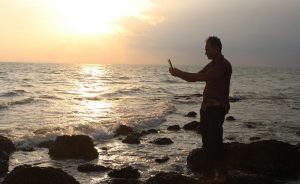 Mr. Kun Hok added that the Chroy Svay Eco-Tourism project also substantially contributed to increased income for his community members. The visitors can be individuals, groups, companies or organizations. The visitors can visit the mangrove forest, visit the seaside, swim, catch crabs or snails, and go fishing. The beach is close to the homestay so they can see the beautiful sunrise in the early morning and sunset in the evening. They can also order a wonderful breakfast, lunch and dinner with Khmer dishes from the community sellers.
Mr. Kun Hok added that the Chroy Svay Eco-Tourism project also substantially contributed to increased income for his community members. The visitors can be individuals, groups, companies or organizations. The visitors can visit the mangrove forest, visit the seaside, swim, catch crabs or snails, and go fishing. The beach is close to the homestay so they can see the beautiful sunrise in the early morning and sunset in the evening. They can also order a wonderful breakfast, lunch and dinner with Khmer dishes from the community sellers.
The design of Morodok’s program was based on a needs assessment with local communities to make sure that the intervention is highly responsive to the identified needs. Morodok’s program pooled its efforts to improve the co-management of fishery resources and increase opportunities for better livelihoods through increased access to adequate skills, markets and financial services.
Case Story: Restoring Peace in Phnom Top Cheang
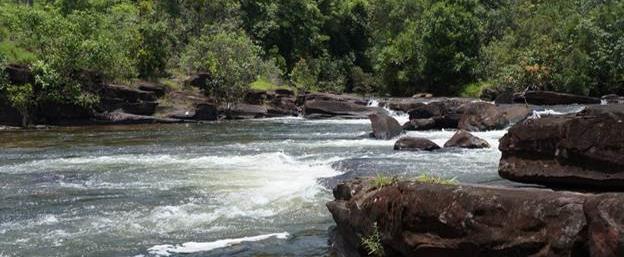 Phnom Top Cheang is a peaceful place. Local villagers look after a community forest on the side of the mountain and sell honey from hives placed in the forest. A waterfall attracts eco-tourists on a regular basis.
Phnom Top Cheang is a peaceful place. Local villagers look after a community forest on the side of the mountain and sell honey from hives placed in the forest. A waterfall attracts eco-tourists on a regular basis.
In November 2016, the members of Phnom Top Cheang community forest were busy. Their largest ever tourist group was about to visit: 120 Cambodian adventurers organized by the camping group Camid Explorer. The villagers divided into separate committees. One committee looked after administration, while a second committee prepared food. A third committee acted as tour guides, explaining the secrets of the forest and the local flora and fauna. Luckily for the homestay committee, who had never before looked after such a big group, the tourists brought their own tents.
Morodok assisted the villagers to prepare their eco-tourism operation: organizing meetings, building cooperation with local authorities, and providing technical support.
Phnom Top Cheang has not always been the peaceful oasis it is today. Up until 1996, the area had been controlled by the Khmer Rouge. After putting down their weapons under a government amnesty deal, the community faced new conflicts: with armed logging groups; with a logging company cutting timber outside of their concession area; with wildlife rangers who dismantled farmers’ cottages and fences in the state forest; and with a Chinese hydropower company that built a road through their farmland.
AFSC, the predecessor to Morodok, helped build understanding of peaceful conflict resolution methods, involving dialogue and cooperation with local authorities. AFSC introduced villagers to the concept of community-based natural resources management, and helped the Preah Angkeo and Bak Angrut villages establish the Phnom Topcheang Community Forest.
By the time AFSC handed over the program to Morodok in 2011, some semblance of normalcy had returned to this conflict-ridden area. This opened the possibility of opening the area’s pristine beauty to community-based ecotourism. The villagers’ community-based eco-tourism project now has its own website ( www.cbet-ptc.org ).
Case Story: “White Gold from the Sea”
Noun Nim is 32 years old. Noun Nim and his wife, Sorn Samin, earn their living by producing marine salt during the dry season. He inherited the skill from his parents. During the raining season, fishing crabs and mangrove lobsters is their main activity to complement the family income.
From year to year, marine salt production relies on the climate. In some years, a long dry season with excessively hot temperatures has impeded Noun Nim from producing much salt. Too poor to pay for the extra labor required to clean the salt field, Nim encountered a lot of difficulties. Continue reading

